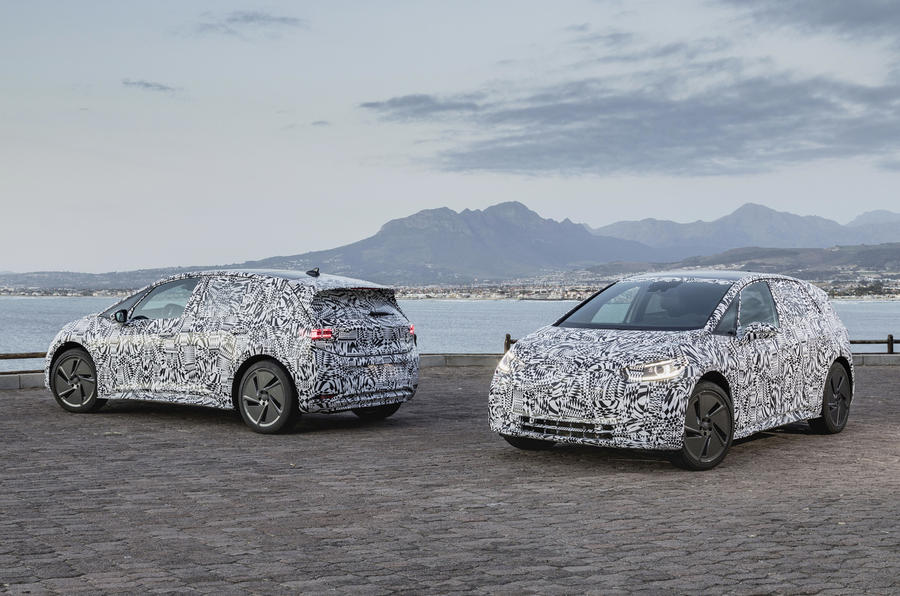Volkswagen Group say it wants to sell 22 million fully-electric vehicles over the next ten years and has 70 different models in the pipeline, up from the 50 models it had previously planned.
The VW Group, whose brands include Audi, Bentley, Bugatti, Seat, Skoda, Porsche and Volkswagen, had set the initial target of 50 EVs by 2030 as part of its 2017 ‘Roadmap E’ initiative. It now says that, by 2025, VW’s fleet CO2 footprint will be 30% lower than in 2015 with the total investment in ‘electrification’ reaching €30 billion (£25.6 billion) by 2023.
The first two electric vehicles out of the traps will be the Audi E-tron and Porsche Taycan. VW says that it has received around 20,000 ‘expression of interest’ for each of those vehicles.
These will be followed by the mainstream models based on the new MEB bespoke dedicated electric architecture, including three VWs (the ID hatch, Crozz, and Buzz) the Seat el-Born and production version of the Skoda Vision E. The MEB family models will have a maximum range of 340 miles.
Volkswagen boss Herbert Diess said expanding the number of electric models means the projected number of full electric vehicles the group will build by 2030 will increase from 15 million to 22 million, comprising around 40% of the group’s vehicle fleet. He added that the new goal was part of an effort to make the VW Group CO2-neutral “in all areas from fleet to production to administration” by 2050.
Car firms are facing increasingly tough CO2 targets, and Diess said the VW Group’s goal was in line with those set out in the Paris Agreement on climate change to make Europe CO2-neutral by 2050.
Diess said that "VW is changing fundamentally", adding: "this supertanker is picking up speed and is becoming faster and more agile. VW is evolving from carmaker to software company."
He added that in order to meet the cost of the VW Group’s electrification programme the group “must make further improvements in efficiency and performance in all areas”.
VW says that by 2022, it will have 13 factories - eight in Europe, four in China and one in the US - on three continents producing electric cars. The first MEB-based VW ID hatch will roll off the line at the re-fitted Zwickau plant at the end of this year.
VW says that wants the new MEB platform to become the "new standard for industry", although it has not yet found a major carmaker partner. However VW has secured a cooperation deal with Ford on building future vans and pick-ups, including the next-generation Amarok pick-up.
Other joint venture deals include Microsoft for the creation of the VW Automotive Cloud. VW Group Components has been established as an independent business which will cover battery life production from the mineral purchased to end-of-life recycling. The new division will also offer electric drive units ‘to third parties’.





Join the debate
Add your comment
VW struggles
VW brand's margin slipped to 3.8 percent, down from 4.2 percent in 2017, VW Group said at its annual press conference here on Tuesday. VW had targeted a margin of 4 percent to 5 percent.
"Zee Germans are Coming!"
VW Group, masters in announcing world supremacy.
A typical German defect.
Yet, modest Toyota rulez the real world, clever PSA Europe, the F-Truck the USA
Can we have an article that